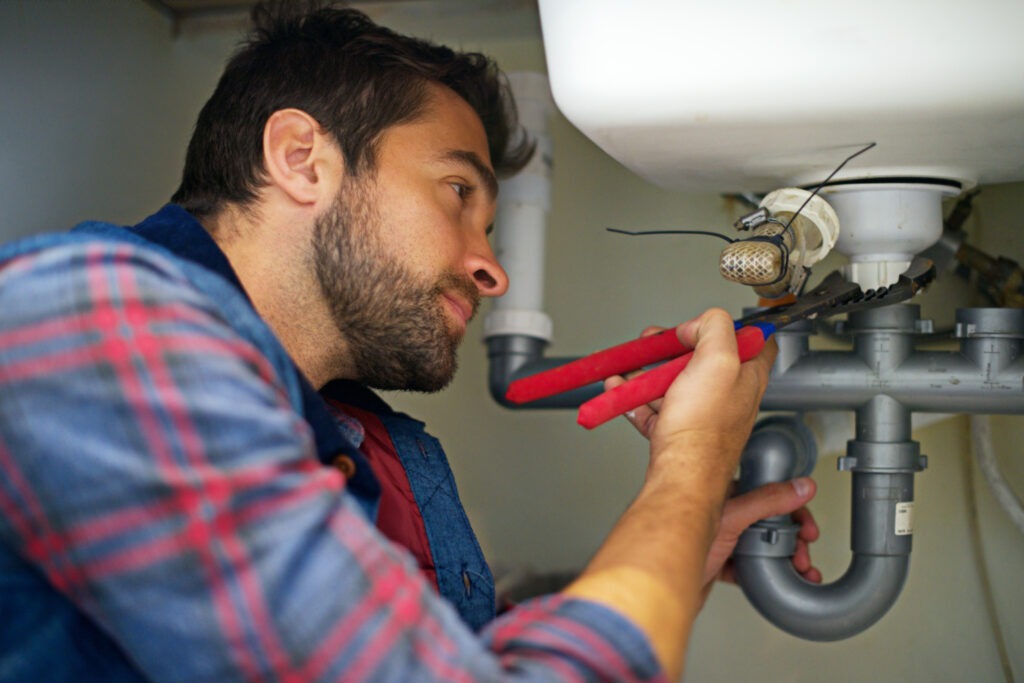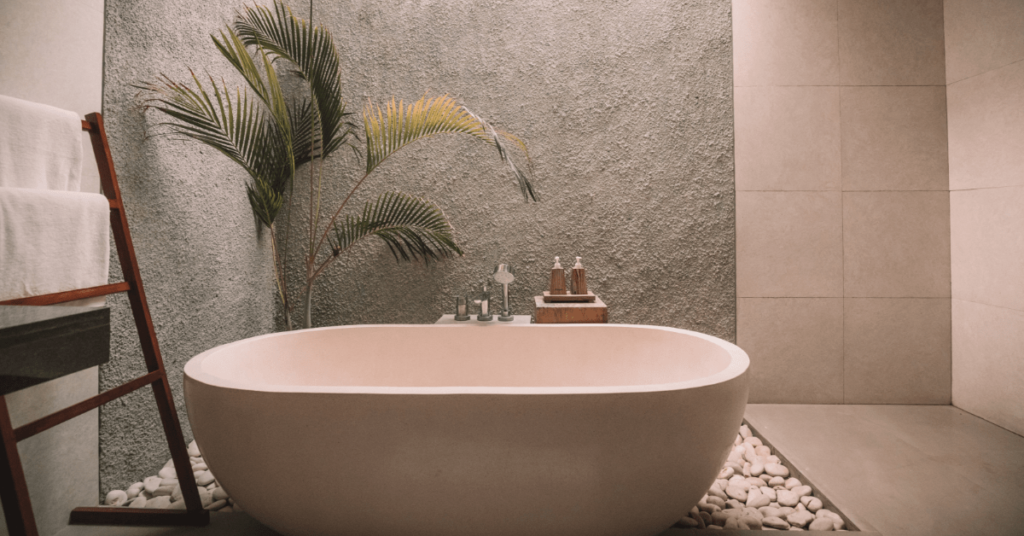Sustainable Plumbing Solutions: Crafting an Eco-Friendlier Home
Sustainable Plumbing Solutions: Crafting an Eco-Friendlier Home
Blog Article
Each person has got his or her own perception about Environmentally Sustainable Home Plumbing.

Introduction
In today's globe, lasting living is becoming increasingly crucial. One location where homeowners can make a significant influence is through green pipes remedies. By taking on eco mindful methods, families can minimize their water and energy consumption while contributing to a much healthier earth.
Water-Efficient Components
Standard components usually drainage unnecessarily. Nonetheless, contemporary low-flow toilets, faucets, and showerheads are developed to minimize water use without sacrificing efficiency. These fixtures can dramatically decrease house water intake, resulting in reduced water bills and a minimized environmental footprint.
Greywater Solutions
Greywater refers to carefully utilized water from sources such as showers, sinks, and washing devices. Rather than letting this water go to waste, greywater systems recycle it for non-potable uses such as landscape watering and commode flushing. By implementing a greywater system, property owners can save fresh water resources and decrease pressure on municipal wastewater therapy centers.
Rainwater Harvesting
Rainwater harvesting entails gathering and storing rainwater for numerous objectives, including irrigation, commode flushing, and laundry. Rainwater collecting systems commonly include a collection surface (such as a roof), seamless gutters, downspouts, and storage tanks. By harvesting rainwater, home owners can lower their dependence on community water resources and save freshwater sources.
Solar Water Heaters
Conventional hot water heater depend on nonrenewable fuel sources or electrical energy to heat water, adding to carbon exhausts and energy intake. In contrast, solar hot water heater use sunlight to warm water, providing an eco-friendly and eco-friendly alternative. By taking advantage of solar power, property owners can reduce their power bills and decrease their carbon footprint.
Green Pipeline Products
Typical plumbing materials such as copper and PVC can have unfavorable ecological impacts during production and disposal. However, there are sustainable options readily available, such as recycled steel, cross-linked polyethylene (PEX), and high-density polyethylene (HDPE). These environment-friendly pipeline materials use sturdiness, long life, and minimized environmental effect.
Energy-Efficient Appliances
Along with water-efficient components, energy-efficient home appliances can further minimize a family's ecological impact. High-efficiency washing machines and dishwashing machines make use of less water and power per cycle, aiding to save resources and reduced utility expenses. When buying appliances, seek ENERGY CELEBRITY ® certified designs for optimal efficiency.
Smart Water Administration Equipment
Developments in technology have made it much easier than ever before to monitor and enhance water use in the home. Smart water management systems use sensing units and data analytics to track water usage in real-time, determine leakages, and supply understandings for preservation. By applying clever water management solutions, property owners can reduce waste and make best use of performance.
Price Factors to consider
While green pipes choices may have higher upfront prices than standard options, they frequently provide lasting financial savings through minimized water and power expenses. Additionally, several governments offer motivations such as rebates and tax obligation debts for environment-friendly upgrades, helping to counter initial expenditures.
Installation and Upkeep
Proper setup and normal maintenance are necessary for ensuring the efficiency and long life of eco-friendly plumbing systems. It is necessary to hire certified specialists to mount and service these systems to avoid issues and optimize performance. Regular upkeep jobs such as looking for leakages and cleansing filters can also help prevent problems and optimize performance.
Ecological Advantages
The ecological advantages of environment-friendly pipes are considerable. By conserving water and energy, homeowners can lower their carbon impact and lessen their effect on natural resources. In addition, environment-friendly plumbing practices can aid safeguard environments and preserve biodiversity for future generations.
Health Benefits
In addition to environmental benefits, eco-friendly plumbing can likewise add to improved indoor air high quality and wellness. By utilizing safe products and reducing chemical exposure, house owners can develop a much healthier living setting on their own and their families.
Government Incentives
Many governments supply economic motivations to motivate house owners to embrace environmentally friendly plumbing techniques. These motivations may include discounts, tax obligation debts, and low-interest loans for energy-efficient upgrades. By capitalizing on these programs, house owners can make environmentally friendly renovations a lot more economical and available.
Final thought
In conclusion, eco-friendly pipes choices provide numerous advantages for house owners and the environment alike. By buying water-efficient components, greywater systems, rainwater harvesting, solar hot water heater, eco-friendly pipeline materials, energy-efficient devices, wise water management systems, and various other sustainable options, households can minimize their environmental footprint, reduced their utility expenses, and add to a healthier world for future generations.
10 Greener Plumbing Solutions for a Sustainable Home
Install Water-Saving Fixtures
One of the most effective ways to conserve water is by installing water-saving fixtures. Low-flow toilets, aerated faucets, and adjustable showerheads are excellent choices. These fixtures reduce water consumption without compromising performance, allowing you to save both water and money.
Embrace Tankless Water Heaters
Say goodbye to energy-hungry traditional water heaters! Tankless water heaters are a greener alternative. Unlike their counterparts, these systems heat water on-demand, eliminating the need for a constantly heated reservoir. By only heating water when needed, tankless water heaters save energy and lower utility costs.
Opt for Greywater Recycling
Make the most of your water usage by recycling greywater. Greywater recycling systems collect and treat water from showers and laundry, making it suitable for non-potable uses like toilet flushing or watering plants. This reduces the strain on freshwater resources and minimizes water waste.
Consider Energy-Efficient Water Heaters
Upgrade to energy-efficient water heaters like heat pump water heaters or solar water heaters. Heat pumps utilize ambient air to heat water, while solar heaters use the sun's energy. Both options significantly reduce energy consumption and contribute to a greener home.
Invest in Leak Detection and Prevention
Undetected leaks can lead to significant water waste. Install smart water leak detection devices that monitor your water usage and promptly notify you of any leaks. By taking immediate action, you can prevent water waste and avoid potential damage to your home.
Insulate Your Pipes
Insulating your pipes is a simple yet effective way to improve energy efficiency. Properly insulated pipes minimize heat loss and reduce the risk of frozen pipes in colder climates. By conserving heat and preventing energy waste, you can save on energy bills while enjoying a greener plumbing system.
Harness the Power of Rainwater
Rainwater harvesting is a sustainable practice that can supplement your water needs. Collect rainwater in barrels or tanks and use it for tasks like watering your garden or flushing toilets. This reduces reliance on municipal water supplies and conserves precious freshwater resources.
Choose Eco-Friendly Plumbing Materials
When upgrading your plumbing system, opt for eco-friendly materials. Water-efficient fixtures made from recycled materials and piping materials like PEX (cross-linked polyethylene) promote sustainability. These choices not only conserve resources but also contribute to a greener planet.
Upgrade to Dual-Flush Toilets
Dual-flush toilets offer two flush options: a lower-volume flush for liquid waste and a higher-volume flush for solid waste. By using the appropriate flush setting, you can significantly reduce water consumption. Dual-flush toilets are an easy and efficient way to conserve water in your home.
https://www.croninplumbingandheating.com/post/10-greener-plumbing-solutions-for-a-sustainable-home

As a serious person who reads on Eco-Friendly Plumbing: Transform Your Home, I figured sharing that excerpt was worth the trouble. Sharing is caring. Helping others is fun. We value reading our article about Eco-Friendly Plumbing: Transform Your Home.
Visit Website Report this page